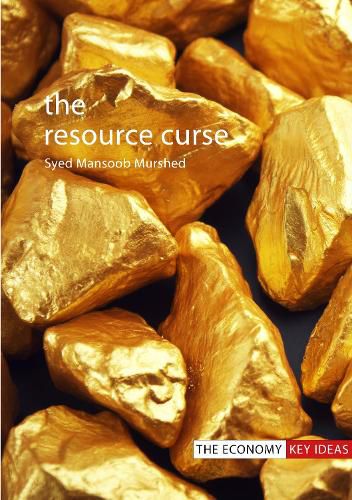Readings Newsletter
Become a Readings Member to make your shopping experience even easier.
Sign in or sign up for free!
You’re not far away from qualifying for FREE standard shipping within Australia
You’ve qualified for FREE standard shipping within Australia
The cart is loading…






The resource curse, or paradox of plenty, refers to the long-established notion central in development economics that countries rich in natural resources, particularly minerals and fuels, perform less well economically than countries with fewer natural resources. In other words, resources are an economic curse rather than a blessing.
This short primer explores the complexities of this idea and the debates that surround it, in particular under what conditions the resource curse might operate, if not universal. Discussion ranges over the nature of resource booms, the benefits and costs of export-led growth, the problems of deindustrialization and manufacturing base erosion, rent-seeking behaviour and corruption and the empirical evidence of the effects of natural resource dependence on growth. The book also considers the links between resource rents and the risk of conflict and civil war.
The treatment draws throughout on a range of illustrative examples from across the developed and developing world and offers an authoritative introduction to one of the most perplexing issues for economic growth.
$9.00 standard shipping within Australia
FREE standard shipping within Australia for orders over $100.00
Express & International shipping calculated at checkout
The resource curse, or paradox of plenty, refers to the long-established notion central in development economics that countries rich in natural resources, particularly minerals and fuels, perform less well economically than countries with fewer natural resources. In other words, resources are an economic curse rather than a blessing.
This short primer explores the complexities of this idea and the debates that surround it, in particular under what conditions the resource curse might operate, if not universal. Discussion ranges over the nature of resource booms, the benefits and costs of export-led growth, the problems of deindustrialization and manufacturing base erosion, rent-seeking behaviour and corruption and the empirical evidence of the effects of natural resource dependence on growth. The book also considers the links between resource rents and the risk of conflict and civil war.
The treatment draws throughout on a range of illustrative examples from across the developed and developing world and offers an authoritative introduction to one of the most perplexing issues for economic growth.